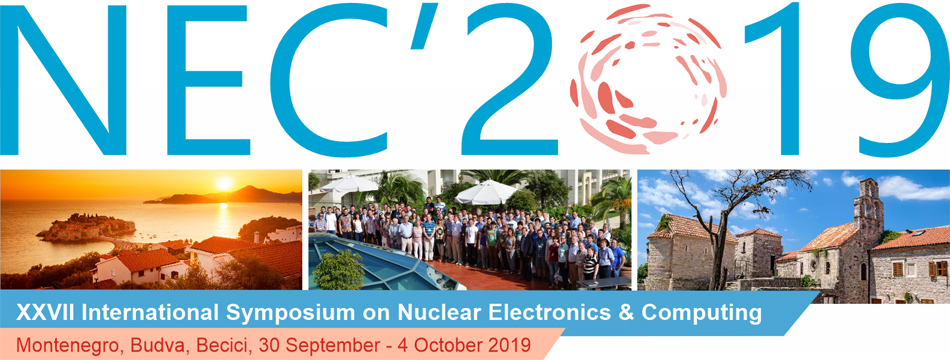Speaker
Dr
Martina Ressegotti
(University & INFN Pavia, Italy)
Description
The CMS experiment is one of the two general purpose experiments at the LHC pp collider. For LHC Phase-2, the instantaneous luminosity delivered to the experiment will reach 5 × 1034 cm−2s−1, resulting in high particle fluxes that requires the detectors to be upgraded. The forward regions, corresponding to the endcaps of the detectors, are the most affected parts. In the CMS experiment, to cope with the higher event rates and larger radiation doses, triple-layer Gas Electron Multipliers (GEM) will be installed in the muon endcaps. Triple-GEM chambers will complement the existing Cathode Strip Chambers, leading to a better identification of the muon tracks and a reduction of the trigger rate due to the suppression of fake candidates. In addition, the forward coverage will be further extended. For the first ring of the muon endcaps, 144 GEM chambers are being built in production sites spread in 7 countries around the world. For the first time, such detectors will have large sizes of the order of 1 m2, thus high requirements on the uniformity across the detector are needed. Before the final installation in the CMS detector, to test their integrity, quality and performance, the GEM chambers undergo multiple quality control tests. This talk gives an introduction to GEM detectors and presents results of the performance tests.
Summary
This talk gives an introduction to GEM detectors and presents results of the performance tests.
Author
Dr
Martina Ressegotti
(University & INFN Pavia, Italy)

